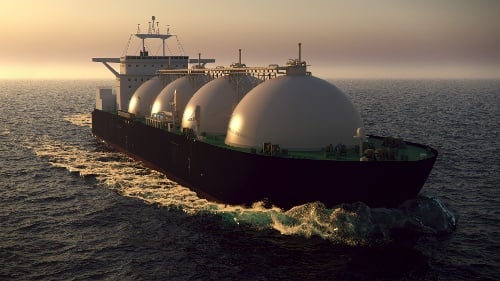The Houthi missile attacks in the Red Sea are causing a significant impact on maritime commerce, extending beyond liner shipping to wet bulk, dry bulk, car carriers, and LNG trades. These Iranian-backed attacks are leading to tangible costs for Western economies, with elevated LNG prices in Europe being one consequence. Container ships are avoiding the Red Sea/Suez route, opting for the longer journey around the Cape of Good Hope. Over 500 container ships have taken this alternative route since the Houthi attacks began, resulting in skipped calls for major Middle Eastern ports and the suspension of THE Alliance's dedicated Asia-Red Sea service.
The effects are felt globally, affecting customers in Europe and the U.S. East Coast. Diversions around the Cape of Good Hope are extending voyage times, increasing charter rates for idle ships, and nearly tripling Asia-Europe box rates since December.
The security risk is now impacting other sectors, with no car carriers present in the Red Sea recently. Bulk carriers, including vessels like Zografia and Genco Picardy, have been affected, with some vessels hit. LNG carriers, including those from top exporter QatarEnergy, are also avoiding the Red Sea, potentially impacting LNG prices in Europe in the long run.
Tanker operators, even for cargoes associated with Russia, are increasingly seeking alternative routes. Russian-chartered Aframax tankers have reversed course in the Mediterranean, avoiding the Suez Canal due to security concerns.
China, sharing policy positions with the Houthis, is reportedly growing concerned about the disruption. China is pressuring Iran, believed to supply Houthi forces with missile and drone technology, to rein in the attacks to avoid jeopardizing Chinese investments. The disruption in Red Sea security is of interest to Chinese policymakers due to its impact on trade, a crucial aspect of China's slowing economy.

Source: The Maritime Executive





